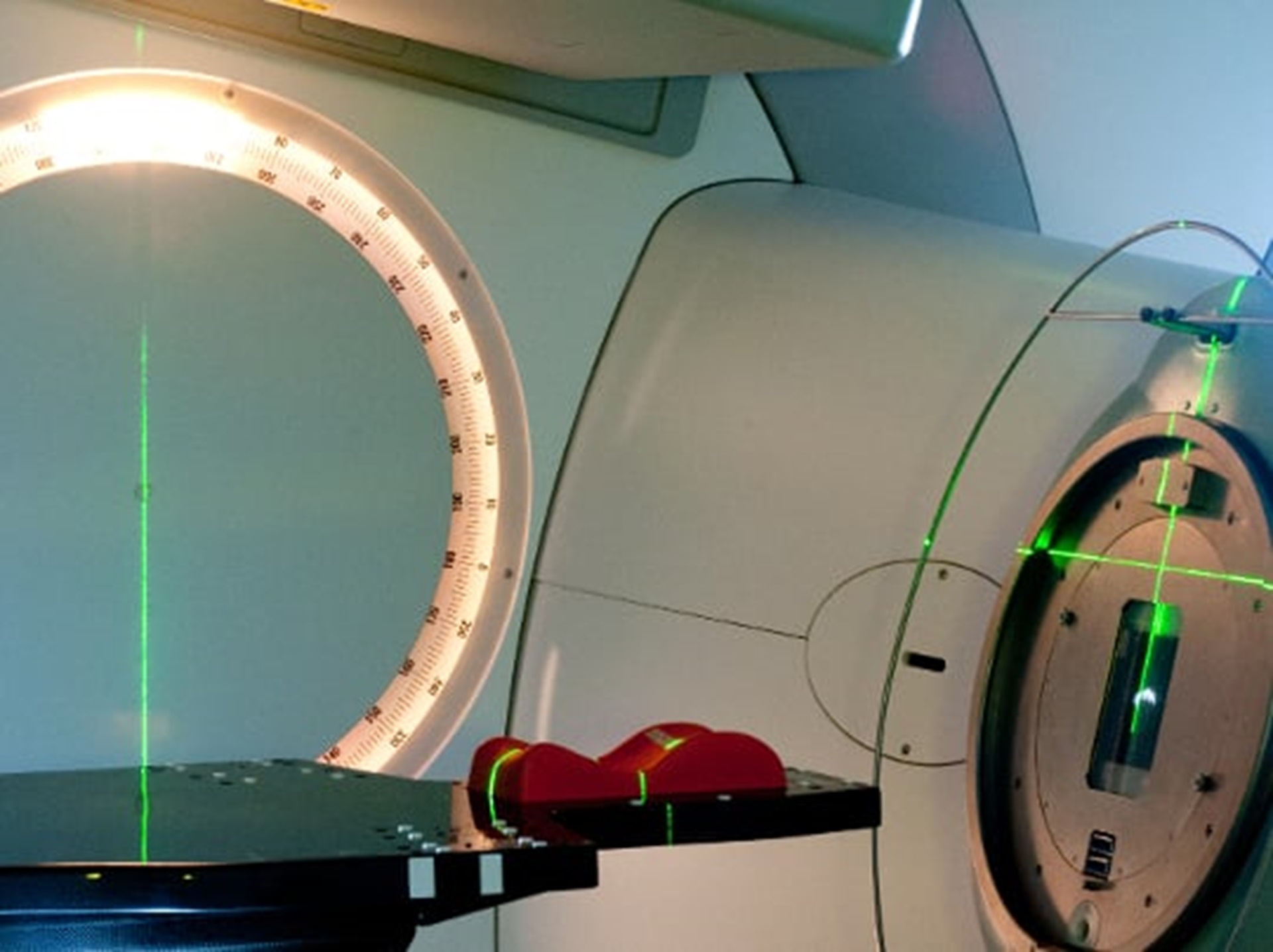A new technique for targeting radiotherapy at prostate cancer could improve treatment for aggressive disease that has spread into pelvic lymph nodes.
Researchers at The Institute of Cancer Research, London, and The Royal Marsden NHS Foundation Trust developed a way of factoring in a ‘bowel expansion margin’, to remove healthy bowel tissue from the line of fire.
A new study published in the International Journal of Radiation Oncology-Biology-Physics compares different methods of mapping the areas to be targeted by radiotherapy in seven patients.
The study was largely funded by Cancer Research UK and the NIHR Biomedical Research Centre at the ICR and The Royal Marsden.
Researchers at the ICR and The Royal Marsden used the data produced from the study to develop the new, optimised method for targeting radiotherapy.
A set of guidelines resulting from the study have already been implemented in a major phase II trial of prostate cancer radiotherapy and the new method is now being used in routine practice at The Royal Marsden.
Researchers said the technique could allow doctors to target pelvic lymph nodes – into which aggressive cancers spread – more precisely with radiation, while avoiding neighbouring healthy tissue such as the gut, bladder, bone and muscles.
By enabling doctors to target treatment more accurately, the new technique could reduce the chance of cancer recurrence or the numbers of courses of radiotherapy needed – improving treatment while minimising side-effects.
The new method sets out clear, reproducible guidelines on how to calculate the size of the area that needs to be treated. The technique takes advantage of advances in modern radiotherapy planning systems which can automatically expand outlines of pelvic blood vessels to include relevant pelvic lymph nodes. Researchers also designed a novel system for taking into account bowel expansion.
The study concluded that leaving a 3 mm margin around the gut wall would maximise the pelvic lymph node tissue receiving radiation, while minimising damage to bowel tissue.
Tests on the same patients revealed that using the new technique meant a larger area could safely be targeted by radiotherapy. They were able to target an average lymph node volume of 310.3 cm³ – an increase of 53.6 cm³ and 23.0 cm³ compared with the two methods currently used in hospitals – while reducing the volume of bowel treated.
The radiotherapy target area is worked out by looking at CT scans of a patient’s pelvis and outlining the treatment area that includes all of the tumours, but avoiding healthy organs that lie close by in the surrounding area.
Previous techniques have relied on either basic software or freehand drawing onto CT scans of the pelvis, which can be difficult to reproduce accurately from clinic to clinic.
Professor David Dearnaley, Professor of Uro-Oncology at the ICR and Honorary Consultant Clinical Oncologist at The Royal Marsden, said: “Prostate cancer is common, and for some patients there is a high risk of disease spread from the prostate into the surrounding area, particularly the pelvic lymph nodes. Our research aimed to develop a technique to target the pelvic lymph nodes more accurately without hitting surrounding tissues like the gut wall.
“We believe the guidelines we have developed should allow clinicians to deliver radiotherapy more accurately and effectively at tumours – while minimising side-effects. By increasing the volume of lymph nodes we are irradiating, but reducing the volume of the bowel that is exposed, we should improve treatment results and at the same time reduce side-effects.”
